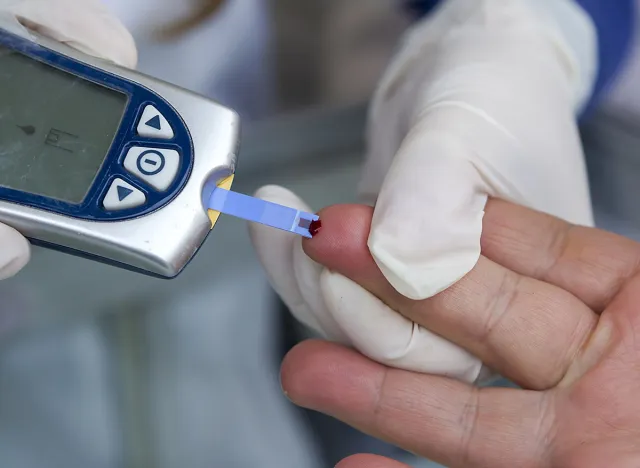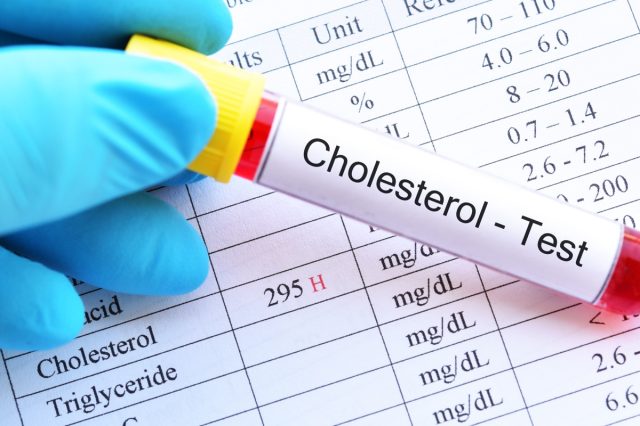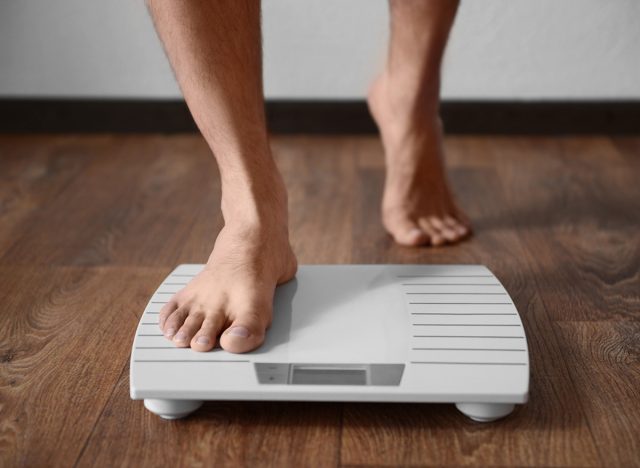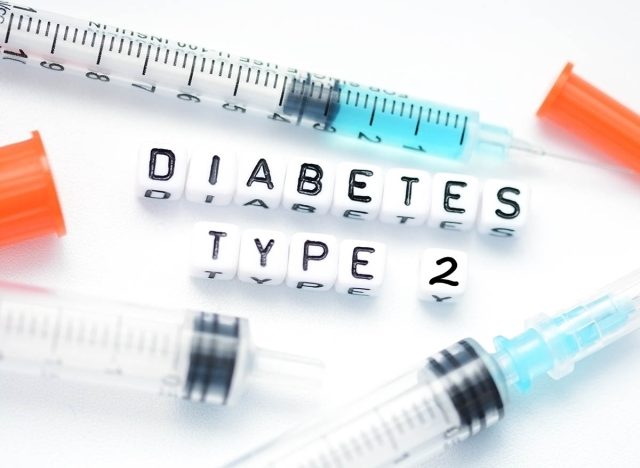17 Ways Your Body May React When You Quit Ozempic

Most people are so focused on what happens while they are taking Ozempic – ranging from the pros of weight loss to the cons of some of the most common side effects – that they tend to ignore what happens after you stop getting the jab. There are actually lots of ways your body can react post-Ozempic, according to Kylie Bensley, MS, RD, Certified Nutritionist, Clinical Dietician, and Founder of Sulinu. Here are key things that could happen.
Your Blood Sugar Could Spike

According to Bensley, if people with diabetes stop taking it, their blood sugar returns to normal pre-Ozempic levels. "43 percent of people with prediabetes were able to keep their blood sugar within normal limits after stopping Ozempic," she says. This can lead to worsening side effects of elevated blood glucose that can negatively impact heart, eye, and nerve health.
You Might Get a Fungal/Yeast Infection

Bensley also maintains that due to your blood sugar spiking, you will be more susceptible to fungal/yeast infections. "Revisit trialing diabetes medications or begin natural supplementation of blood sugar regulation, such as Berberine," she recommends. Also, walking for 10 minutes after meals has been shown to keep blood sugar stable.
Your Mood Could Change

Mood changes due to more erratic blood sugar are also possible. "Higher blood sugar has been associated with anger and sadness. Lower blood sugar has been associated with nervousness, confusion, irritability, difficulties with concentration and decision making," she says. In addition to her previous suggestion, she recommends carb pairing, "making sure that carbs always have friends and they are never consumed alone," she says. "This slows the transit of the blood sugar in the system and prevents erratic spikes."
A Plus? Side Effects Subside

On a positive note, side effects of Ozempic subside when you stop getting the jab. "Many people have GI distress symptoms such as nausea and vomiting that subside when stopping the medication," says Bensley. "You may also be able to stop your anti-nausea medication and your laxative at the same time you stop Ozempic."
You Probably Won't Experience Any Changes for a Week

Don't expect changes for a week after you get your last jab due to Ozempic's half-life. "Ozempic's half-life is a week; this means that within a week, half of the medication has left your system," says Bensley. "It completely leaves your system in 4-5 weeks," she adds. A bonus? Even though you stop, you may still be seeing weight loss for up to a month.
Your Appetite Will Probably Increase

Appetite can begin increasing after a week after Ozempic. "As you eat more, increase your exercise (even if it's just walking)," Bensley recommends. "Sulinu's Ozempic Protocol (launching this summer), created by surgeons and dietitians, will help clients navigate how to deal with hunger cues once their hunger returns."
Food Noise Might Return

Expect food noise to return. "With the withdrawal of a hunger-suppressing medication, the well-known 'Food Noise' returns with thoughts on 'What do I eat now that I am hungry again?' At Sulinu, we are creating an Ozempic Protocol to help patients understand how to deal with food noise without gaining weight. It is so important to understand and listen to hunger cues and be prepared for what you will eat when you feel hungry."
RELATED: 5 Foods That Maximize Weight Loss on GLP-1 Medicines, According to Coach
You Might Experience Withdrawal Effects, Like Dizziness

Withdrawal effects, including dizziness, are also possible. This is associated with adverse cardiovascular changes, explains Bensley. "Make sure you discuss this with your healthcare provider."
Headaches Are Also Possible

Another withdrawal effect? Headaches, Bensley says, are also associated with adverse cardiovascular changes. "It is important to have a visit to your PCP as these headaches could be related to rising blood pressure."
Another Positive? Your Cholesterol Will Continue Improving

Your cholesterol still improves even after Ozempic, says Bensley. "Even after stopping Ozempic, studies still showed improvement in people's cholesterol levels," she reveals.
Your Blood Pressure Will Likely Change

You might experience blood pressure changes. "Most people's blood pressure returned to their pre-Ozempic levels when stopping the medication," she says. "With heart health labs quickly changing, many side effects can follow such as headaches, chest pain, dizziness, difficulty breathing, nausea, vomiting, nosebleeds, abnormal heartbeat, vision changes, anxiety, confusion and buzzing in the ears," she continues. "Create a plan with your PCP on how you will monitor your BP. High blood pressure is to be taken very seriously- it takes more than 500,000 lives a year in the US."
You Might Gain Weight in Certain Area

"Weight gain around the central region, which surrounds the key organs where we develop fatty liver disease," is also common. "One year after stopping Ozempic, a study showed people gained back an average of ⅔ of what they lost on Ozempic," says Bensley.
RELATED: 20 Things You Need to Know About Ozempic and Weight Loss
However, You Might Retain Your Weight Loss

However, Bensley adds that most people retain 5 percent weight loss. "The people who lost the most on Ozempic gained the most weight back but still had a higher net loss that remained after 1 year," she explains. Another study showed that an average person lost 10 percent of their weight taking Ozempic and had gained back an average of 7 percent after one year." She recommends exercising to mitigate weight gain. "Some studies show that high-intensity exercise can slow the progression of fatty liver disease," she explains.
Your Pocketbook Will Get Fatter

Your pocketbook will get fatter when you stop Ozempic. "Without insurance, Ozempic can run nearly $1,000/per month, so stopping the medication has significant financial advantages," Bensley points out.
Fear of Weight Gain Could Sink In

You will likely become afraid of gaining weight. "This fear is one of the most talked about and one of the most common questions I get. In fact, it keeps women from even getting on the medication in the first place as they are so afraid the rebound weight gain will be worse than their original weight," says Bensley. "I am a huge believer in taking the Ozempic with a medical professional such as a nurse practitioner or physician. A Registered Dietitian can help tremendously here as well. They will help you create a game plan for success."
You Might Get Diarrhea

You might also experience gastrointestinal issues, like diarrhea. "The exact reason is not clear, but it may be due to how Ozempic affects gut transit," she says.
RELATED: 20 Things to Avoid While on Ozempic
CRP Improvements

CRP improvements (inflammation marker) could also happen. "CRP remained improved even after stopping Ozempic. This shows that inflammation is still improving!" she says.
Ozempic Is Actually Only Approved for Those with Type 2 Diabetes

Keep in mind that Ozempic isn't a weight loss drug. According to the National Library of Medicine it is approved to control blood sugar levels in adults with type 2 diabetes when other medications do not control the sugar levels well enough.
Wegovy Is Approved for Weight Loss

"Semaglutide injection (Wegovy) is used to reduce the risk of a stroke, heart attack, or death in adults who are overweight or obese along with heart and blood vessel disease," they say, adding that "used along with an individualized low-calorie, low-fat diet and exercise program" it can help with weight loss "in obese adults or overweight adults who may also have high blood pressure, diabetes, or high cholesterol" and in obese children 12 years of age or older.
RELATED: How I Lost 30 Pounds in 90 Days on the Mediterranean Diet
Most Common Side Effects

These are the most common side effects of Ozempic and Wegovy:
- nausea
- vomiting
- diarrhea
- abdominal pain
- constipation
- heartburn
- burping.
And if you enjoyed this article, don't miss 20 Incredible Ozempic Success Stories of All Time.




